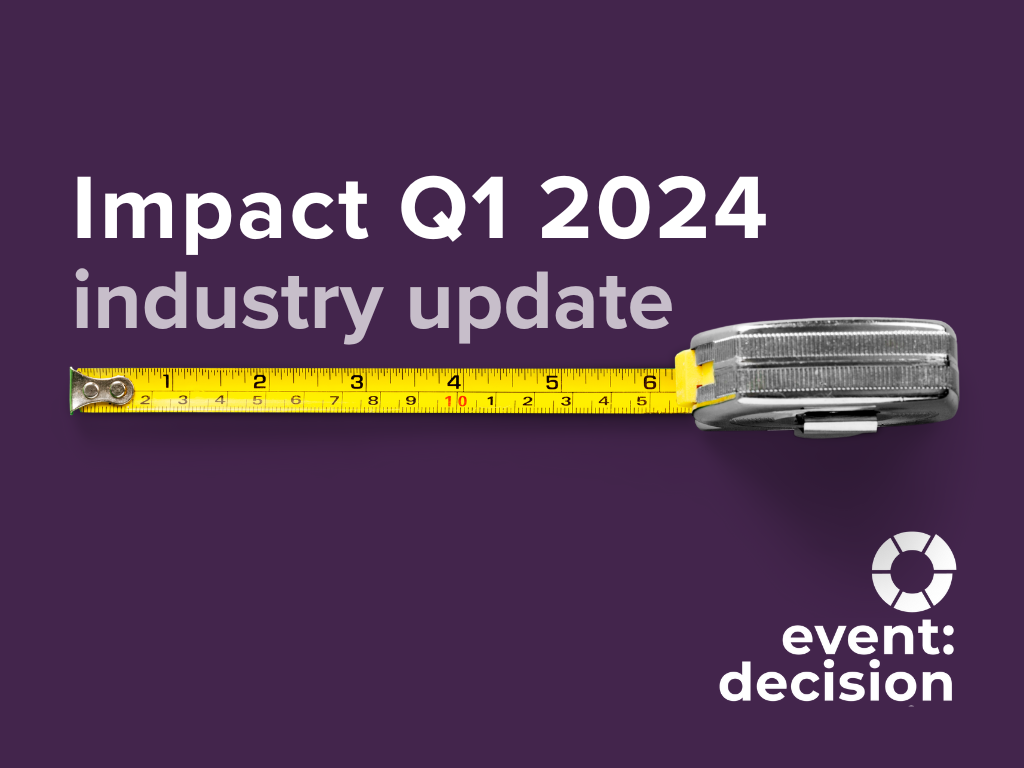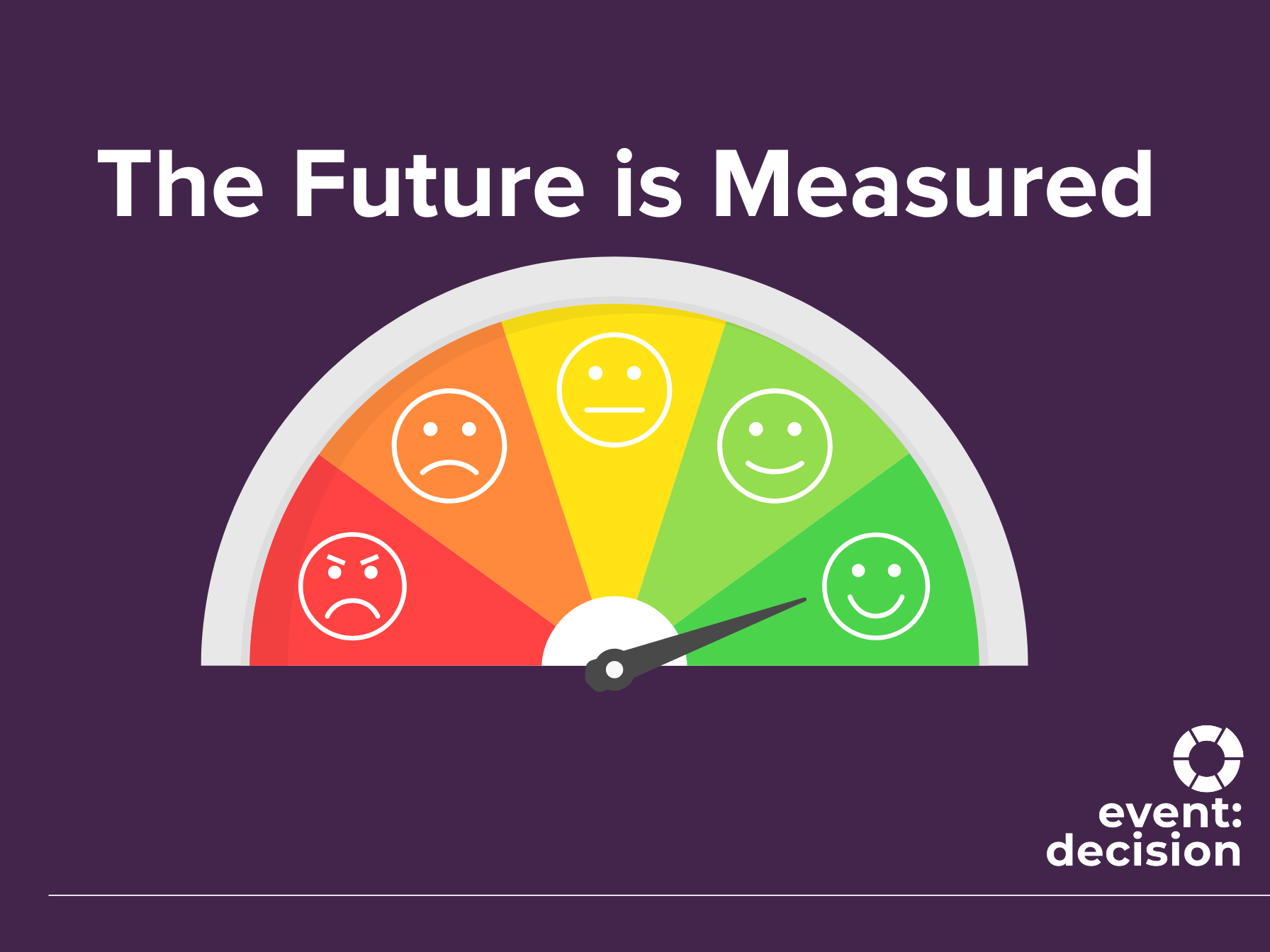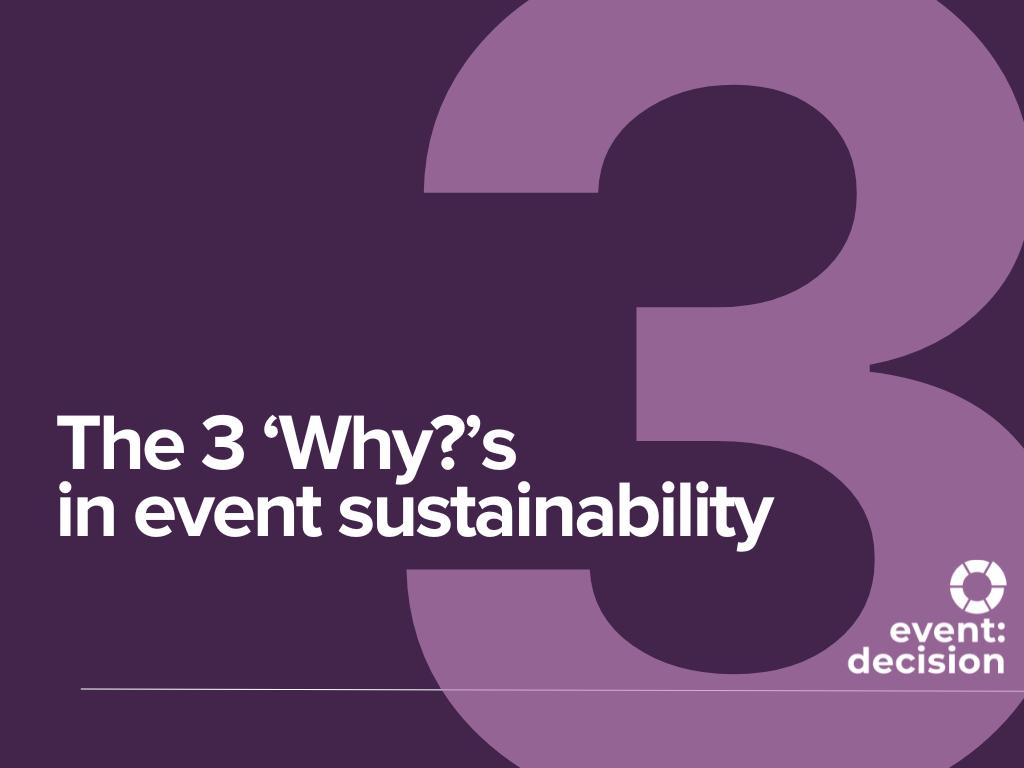Eurovision Song Contest: Carbon Headache or a Reason to Jump for Joy?
Eurovision’s carbon footprint has been calculated in advance of the 2023 contest in Liverpool. Is all the fun worth the damage to the planet?
Eurovision – here we go again (as we like to imagine ABBA singing). It’s almost time for the excitement of the 67th Eurovision Song Contest! Hosted in Liverpool for the first time (the ninth time in total in the UK), as last year’s winners Ukraine were prevented from hosting it themselves. Thirty seven countries will take part in this year’s contest with millions settling down at watch parties to watch at home and thousands of singers and visitors preparing to flood the streets of Liverpool from the 9th to 13th of May. Here at event:decision we thought we’d have a look at the carbon footprint of the core event to work out whether all that fun is really worth it (we’re not party poopers, we promise).
The carbon footprint calculated
CEO and Founder Matt Grey talked us through the process of how the team arrived at the calculation of the total carbon footprint for the event (using our carbon footprint calculator track).
“Thirty-seven countries take part in the Eurovision Song Contest and each entry brings up to 25 people with them. When you calculate flights, hotel accommodation, food and drink, audience travel, audience accommodation, and the energy it takes to host such a mammoth television production to 161 million viewers, then you’re talking big numbers.
Now factor in the production and broadcast crew, staffing the ACC Liverpool and associated venues, crew, and stewards, that’s a lot of people. You also need to consider the 11,000 people travelling to Liverpool for three Eurovision events [two semi-finals and one final] and this all has an adverse impact on the event’s carbon footprint.” Matt Grey
When we input all the data into track to calculate the carbon footprint of Eurovision we arrived at a footprint of approximately 65,000 tCO2e. As Matt explained, that number broke down into the following areas;
- Flights – 879 tCO2e
- Energy consumed at the venue – 30 tCO2e
- Hotels accommodation for participants – 90 tCO2e
- Food and beverage for participants – 46 tCO2e
- Audience travel – 4,450 tCO2e
- Audience hotel accommodation – 356 tCO2e
- Broadcast/streaming – based on 161 million viewers watching a four-hour performance with four people sharing a screen – 59,000 tCO2e
So, is Eurovision’s carbon footprint a lot?
Eurovision as an event is huge. It’s the longest-running annual international televised music competition in the world. In 2022, it had a TV viewing audience of 161 million people and was streamed live into 500 cinemas in the UK. In the UK alone, more than 8.8 million people watched the Grand Final. So it’s not surprising that its carbon footprint is going to be a big number, but just how a big is it really? Matt explained further;
“It’s the same as parking 250,000 double-decker buses nose-to-tail and filling each one with carbon dioxide and other not-so-great gases”.
OK, so not great then?
“Yes, but at the same time, it’s only about 2.5 per cent of last year’s FIFA World Cup”.
That’s a sobering comparison (for FIFA). How does that work out on a per-person basis?
“It’s approximately the same as one pint of beer or one glass of wine, per viewer.”
The same carbon footprint as a single drink per viewer? When you put it like that it really doesn’t seem as bad as we thought it might be. But how much joy can the equivalent of one drink really bring while we all try to work out whether it’s worth it..?
A price worth paying?
We love measuring things, and we were sure someone must have already calculated how much joy Eurovision brings so we tracked down some research. It was carried out by Imperial College, London and it looked at exactly that question – how much joy does the Eurovision Song Contest bring? Their study found that even if your country just takes part it increases your life satisfaction as a viewer. In fact, life satisfaction increased by four per cent for every increase of then places on the final scoreboard. Imperial found that winning the competition doesn’t even matter to the overall impact!
“When you look at it like that, the joy of 161 million people adds up to a lot…”
…concluded Matt, and we have to say we agree.
So here’s to a happy Eurovision for everyone and remember it’s the taking part not the winning that’s important (and the research backs that up).
If you’re interested in finding out more about sustainable event planning, our carbon footprint calculator – track – can calculate your own event’s projected and actual carbon footprint. Please get in touch, we can give you a demo and show you some more sample reports to illustrate just what it could do for you.








